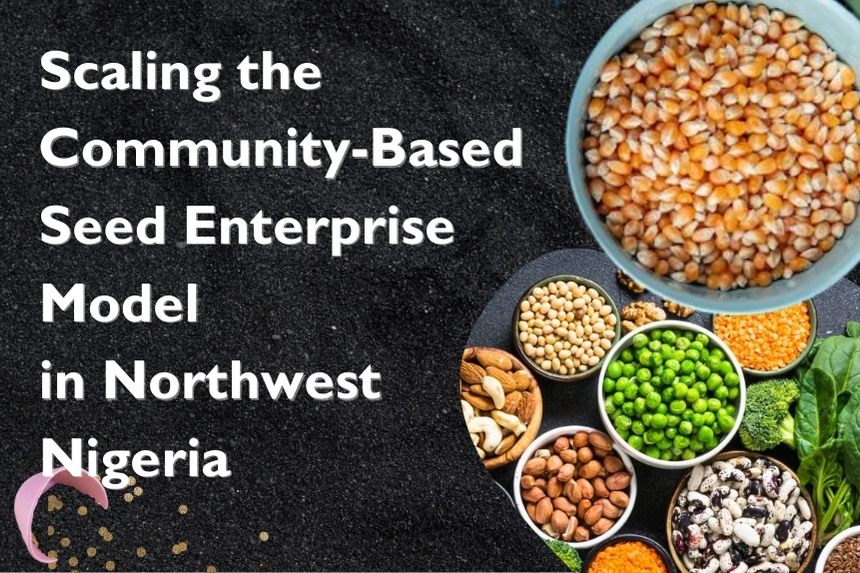Despite Nigeria’s vast agricultural potential, access to quality seeds remains a major challenge with over 90% of the demand for improved seed varieties unmet, hindering crop productivity. This intervention in Kaduna and Kano is designed to address this gap by strengthening the capacity of seed producers and fostering linkages between farmers, seed companies, and regulatory bodies.
Scaling the Community-Based Seed Enterprise (CBSE) Model is a two-year collaborative intervention by Environmental and Economic Resource Centre (EERCE) in partnership with the International Institute of Tropical Agriculture (IITA). This initiative funded by the United States Agency for International Development (USAID), aims to catalyze market systems development for CBSEs and smallholder farmers to facilitate increased economic opportunities and sustainable interventions in seed sectors in Kaduna and Kano. The intervention will position the targeted states for the upcoming USAID Nigeria Feed the Future activities, leading to increased productivity, food security, and agriculture-led economic growth.
Earlier, IITA facilitated a sustainable seed system transformation intervention using the Community-Based Seed Enterprise (CBSE) model in northeast Nigeria, benefiting smallholder farmers in Adamawa, Borno, Gombe, and Yobe states. This intervention enhanced smallholder farmer’s access to certified, high-yielding seed varieties including maize, rice, cowpea, soybean, sorghum, and millet, thereby leading to increased yields and incomes. Expanding this model in Kaduna and Kano presents an opportunity to strengthen the seed sector, particularly within Nigeria’s food production hub with a focus on the three Feed the Future value chains: rice, maize, and horticulture.
Scaling the CBSE model in Kaduna and Kano provides a strategic approach to bridging the seed supply gap and empowering smallholder farmers. By leveraging partnerships, capacity building, and market-driven solutions, this initiative seeks to create a resilient, inclusive, and sustainable seed sector in Northwest Nigeria, contributing to the country’s broader agricultural development goals, economic growth, and food security.

